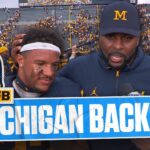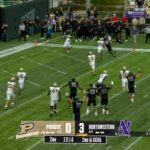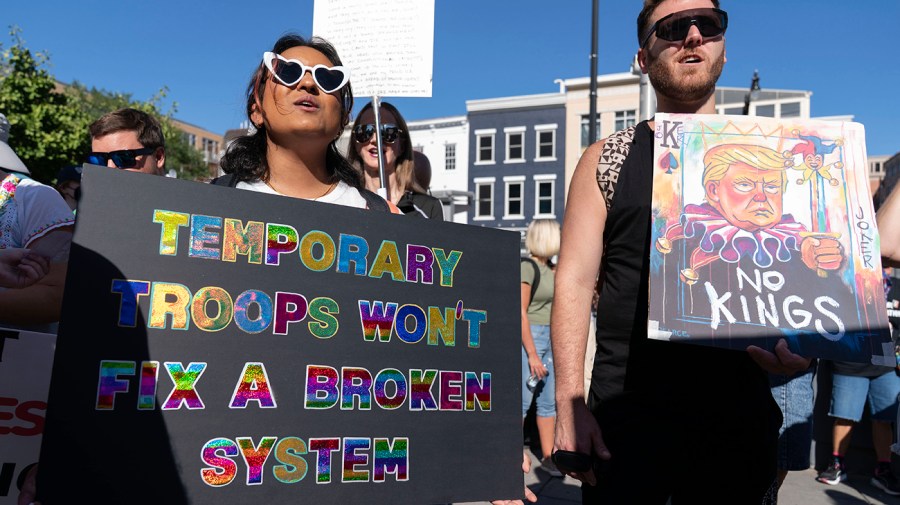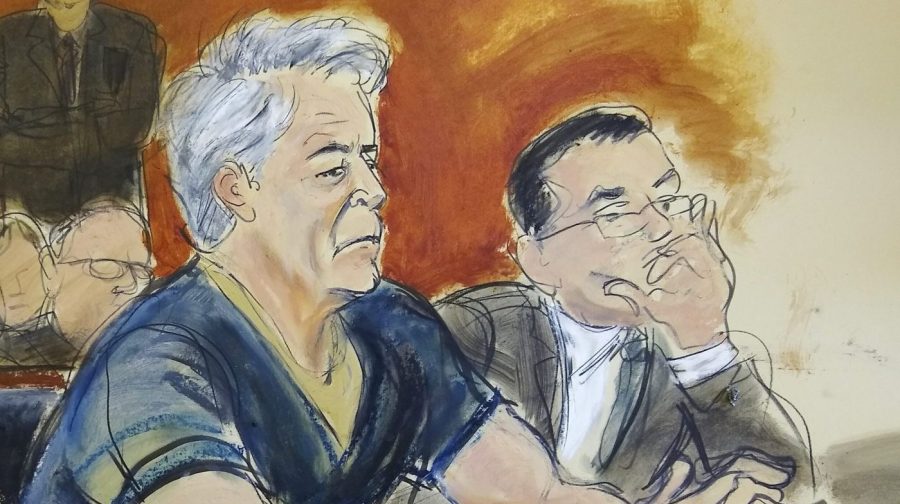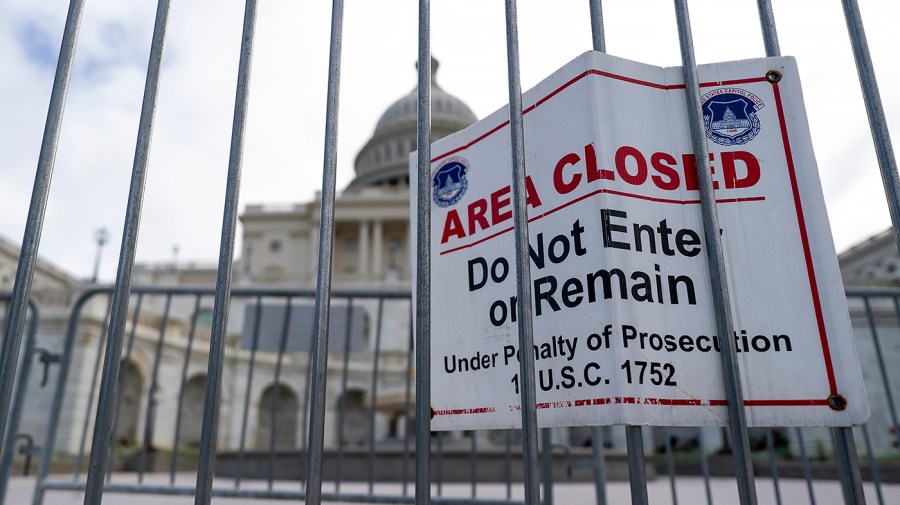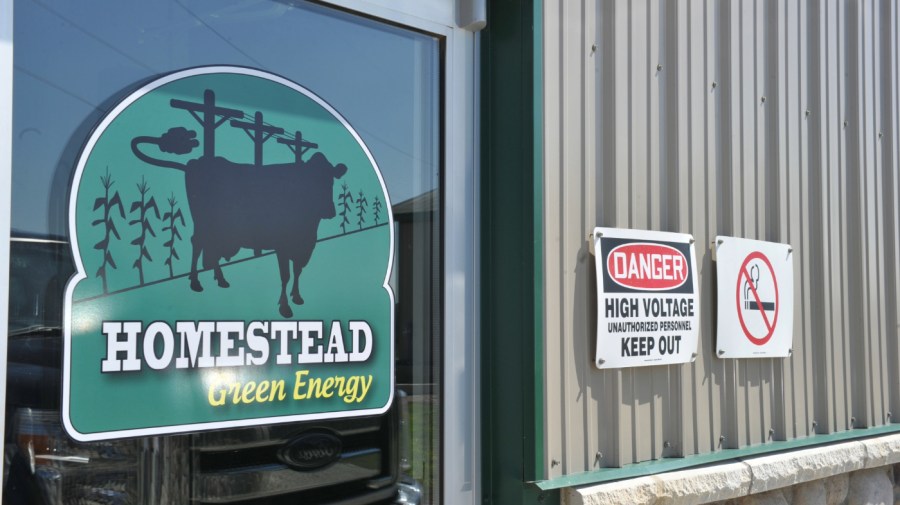The anti-President Trump opposition is leaning into its biggest moment so far with the “No Kings” protests that are scheduled across the nation Saturday.
Organizers say the number of planned events has grown to more than 2,700 and that online RSVPs by people hoping to attend have more than doubled in the past week alone.
The protests are intended — as the name suggests — to provide a rallying point for Americans opposed to, or fearful of, Trump’s consolidation and expansion of power.
“The American people have gotten to a place where they feel Donald Trump does not respect the norms of this country in terms of the balance of power, respecting minority rights, respecting the rights that we all count on like freedom of speech,” said Joel Payne, the chief communications officer for MoveOn, one of about 300 groups that form the coalition behind the protest.
“There is a need to assert that in America we have no kings — not now, not ever,” Payne added.
The last time the No Kings movement put together a similar day of action, about 5 million people are estimated to have shown up. That was on June 14, Trump’s birthday and a day that also saw a controversial military parade, attended by the president, in Washington.
Organizers appear quietly confident that they can exceed the 5 million number this time around.
If it’s a high-stakes moment for the anti-Trump opposition, the same is true for the president.
If the protests draw massive crowds and proceed in an orderly way, it will be a rebuke to Trump’s bedrock contention that he is attuned to the desires of the American people.
For a president whose political brand is built on the perception of strength and dominance, a major show of public defiance poses danger.
If, on the other hand, No Kings sees underwhelming turnout, it would strengthen Trump’s political hand. The same is true if there is significant disorder, which would turn off voters in the center ground and buttress Trump’s suggestion that radicals are the animating force behind the protests.
In recent weeks, Trump, his administration and his allies in the GOP have been casting the No Kings protests specifically — as well as much of his opposition generally — as anti-American, radical and potentially subversive.
Speaker Mike Johnson (R-La.) recently told the Trump-friendly Real America’s Voice outlet, “They call it the ‘No Kings’ rally. We call it the ‘Hate America’ rally. [It will have] all the Marxists collected, all the antifa people, the [Black Lives Matter] remnants, the pro-Hamas wing of the Democrat Party, and they’re going to be out here screaming and wailing.”
White House press secretary Karoline Leavitt told Fox News on Thursday that the Democratic Party’s “main constituency” more generally is “made up of Hamas terrorists, illegal aliens and violent criminals. That is who the Democrat Party is catering to.”
That kind of alarmist hyperbole sharpens liberal fears that a government crackdown could be on the horizon.
Meanwhile, two recent reports, from The Wall Street Journal and Reuters, have indicated that the administration is readying plans to make it easier to undercut the funding of liberal organizations.
The Journal’s story indicated the Trump administration was “preparing sweeping changes” at the IRS which would “allow the agency to pursue criminal inquiries of left-leaning groups more easily.”
Reuters noted the prospect of government investigations into “what the administration labels ‘domestic terror networks’, which includes nonprofits and even educational institutions.”
Meanwhile, Trump last month issued an executive order defining antifa as a “domestic terrorist organization” and calling on all relevant agencies to “investigate, disrupt, and dismantle any and all illegal operations.”
Critics say antifa — the name alludes to its anti-fascist intent — is a far looser and less organized enterprise than Trump makes it appear and worry that his call for action could be used as a pretext for repression of legitimate political opposition more broadly.
All of these debates are playing out against a backdrop of Trump deploying, or seeking to deploy, the National Guard to several major cities. On Friday, his lawyers asked the Supreme Court to overturn a ruling from a lower court blocking his plans to deploy the National Guard to Chicago.
As for Saturday, the No Kings organizers note they are pushing for protests to remain peaceful.
Payne, responding to GOP criticisms of the coming protests, said: “This is a party, the Republican Party, that claims to stand for free speech, people being able to speak their mind, people being able to challenge their government. I wonder where that idea went? How come Americans who have the audacity to disagree with them have become a threat?”
Basil Smikle, a New York-based Democratic strategist, urged people to see the protests as broader than a mere partisan party effort.
He said the protest would also draw a lot of “independent voters concerned about the direction the country is going.”
“It’s an opportunity to create community,” he added.
The Memo is a reported column by Niall Stanage.




